- Home
- Isaac Hooke
Worlds at War (A Captain's Crucible Book 5) Page 4
Worlds at War (A Captain's Crucible Book 5) Read online
Page 4
“I don’t care if the Zarafe homeworld is under attack,” Jonathan said. “I want them back in formation now.”
“Valor says he will only be a few days,” Barrick said. “You know of the Zarafe emissary ships that were launched throughout Raakarr space to share the news of the loss of the Elk homeworld and the resultant change in management? Well, some of those emissaries apparently ended up in the neighboring system beyond 3-Vega, and the Elk weren’t all that pleased with the news. The comm node equivalents report that the only thing left of the Zarafe ships in orbit around the Elk colony is debris. Meanwhile, ten Elk craft are flagrantly patrolling the system, obviously waiting for more messengers to arrive. Valor intends to punish them.”
“As mentioned, I don’t care,” Jonathan said. “Tell Valor that every last mortar and nuke launcher in the human fleet is targeting the Raptor. Tell him our Vipers are aimed at his ship, too. I think even you realize that although our heavy lasers have only begun charging, if all fifty-five ships combine their beams and fire at the same spot on the Raptor, the results won’t be pretty.” None of that was true, of course—the admiral would never risk destroying her one means of communication with the Raakarr, not to mention the loss of the alliance and the promised technology, but Jonathan was gambling that Valor wouldn’t call his bluff. It was up to him to keep the aliens under his command in line, and he would resort to whatever tactics were necessary to do so.
He waited several tense moments. Just when he thought he might have to involve the vice admiral, Ensign Lewis spoke.
“The alien fleet is decelerating,” the ensign said.
“In the interests of not causing a diplomatic incident,” Barrick said. “Valor has agreed to stand down. We are returning to formation.”
“Thank you,” Jonathan said. “Tell him we’ll let him destroy all the Elk he wants to the next time we’re in the neighborhood.”
“I think it’s best if I don’t say anything to him for a while, actually,” Barrick said.
Jonathan tapped out, feeling a shred of pity for the man. The captain remembered all too well what it was like to be trapped aboard the alien vessel. He turned toward his comm officer. “Lazur, let the vice admiral know the situation has been resolved.”
A moment later Lazur replied: “The vice admiral sends his thanks.”
Jonathan exhaled gently. He was beginning to think the ‘honor’ of commanding the alien fleet was becoming a little bit more trouble than it was worth. Then again, if he was completely honest with himself, he kind of liked keeping the unruly aliens in line.
If being a captain wasn’t challenging, I would have never become one.
seven
When the fleet reached Contessa Gate, the destroyer guards clustered around it cleared a path for the Builder traveling with the battle group. The ship moved forward and compared the gravimetric fluctuations with those on record for the Slipstream, confirming that no return Gate existed on the other side in Prius 3.
Levieson tapped in. “Jonathan. We want the Raptor to launch one of its Slipstream-capable probes into Prius 3. Give us the lay of the land.”
“One lay of the land coming right up.” Jonathan relayed the order to Wethersfield, and a few minutes later Ensign Lewis reported an alien probe departing for Contessa Gate.
When it returned, Wethersfield tapped in. “Captain,” the Artificial sent. “The return Gate is definitely gone. Comm nodes are in place beyond the endpoint, as are three United Systems destroyers and a Builder. The latter is working on a new Gate. There are no other intact United Systems vessels, however the probe detected debris consistent with destroyer and supercarrier classes scattered throughout the system.”
“Debris?” Jonathan glanced at Robert. “That’s unexpected. Considering that the scavenger is purported to employ a disintegration weapon.”
“Apparently it’s not the only weapon they have,” the commander said. “Probably a good thing the fleet hadn’t begun reconstruction of any of the bases over there.”
“Probably,” Jonathan agreed. “Wethersfield, there is no debris for the return Gate?”
“Nothing,” Wethersfield said. “I should also mention, in regards to the debris, there is only enough for a handful of United System ships. Definitely not enough to account for the entire fleet that had remained behind in Prius 3.”
“Maybe they fled to Anvil Rappel,” Robert said. “Or were recalled before the attack.”
“Either that,” Jonathan said. “Or our scavenger decided to judiciously employ its disintegration weapon after all. Wethersfield, any sign of the scavenger ship?”
“Negative,” the Artificial replied. “However, and this is odd: the outgoing Gate remains intact.”
Jonathan thought aloud: “So we won’t have to wait six months to build a Gate to the next system.”
“No, we won’t,” Wethersfield said. “Though I’m not sure if that’s good or bad.”
Jonathan relayed the news to Levieson on a private line. When he finished, Levieson said: “The presence of the destroyers and Builder is consistent with what the local fleet has told us. Somewhat.”
“Somewhat?” Jonathan said.
“Yes,” the vice admiral continued. “The Vega 951 fleet sent through fifteen warships to explore Prius 3 after losing communications. The question is, where are the other twelve?”
When Jonathan mentioned the news to Robert, the first officer nodded.
“The Raptor reported the departure of those ships,” the commander said. “Remember? Via the alien scouts they left in Vega 951 and Raakarr-1.”
“I remember,” Jonathan said. “At the time, we assumed it was a routine recall. We should have had the alien scouts travel into Prius 3 with them.”
“Maybe,” Robert said. “Though how could we have known anything was wrong? Considering that the admiral didn’t share any news with us.”
Jonathan nodded slowly. “That was a mistake on her part. But what I’m wondering is, why would the scavenger destroy the return Gate to Vega 951, but leave the outgoing Gate intact?”
“Maybe they forgot to destroy it?” Robert said.
“Doubtful,” Jonathan said. “More like, they want us to come.”
Robert nodded. “Saves them the hassle of having to return here and clean us up. Or it could be that they’re simply the self-righteous sort, and they’re trying to leave the Elk a path open to our homeworld. Give them a chance to take some old-fashioned revenge for what we’ve done, you know what I mean?”
“Could be,” Jonathan said. “We’ll never really know what goes on in the minds of those aliens will we?”
After a brief captain’s conference, the battle group traversed the Gate to Prius 3, leaving behind the existing destroyers to continue holding the system.
The four United Systems vessels waiting at the endpoint revealed they were indeed part of the exploratory party sent through from Vega 951. Even though an outgoing Gate provided access to the adjacent system, Anvil Rappel, the comm nodes in orbit there indicated a return Gate was not present on the other side. Two months ago, the twelve remaining destroyers that had been part of the exploratory fleet had passed through into Anvil Rappel to investigate. They hadn’t reported back. How could they, if it takes six months to build a return Gate?
The admiral told them that the vessels had apparently launched telemetry drones to map out Prius 3 and search for signs of the scavenger ship, or shipyards of any kind. Nothing was found.
The battle group continued forward, leaving the three existing ships to guard the Builder. It would be another three and a half months before the Gate back to Vega 951 was completed. Not that Jonathan expected to be returning this way anytime soon.
It took twelve days to cross the three-star system and reach the intact Gate to Anvil Rappel. Once more the Raptor dispatched advance probes through.
“We haven’t detected any active vessels whatsoever in Anvil Rappel,” Wethersfield reported when the probe returned. “We are, howeve
r, seeing debris from United Systems starships scattered throughout the system, in addition to the wreckages of several Asiatic Alliance craft floating above the former colony.”
That wasn’t entirely unexpected, considering that the binary star system was officially owned by the Asiatic Alliance, and members of their navy had been present to oversee the reconstruction of the colony the Raakarr had destroyed, though the last time Jonathan had passed through he hadn’t seen any indications that the rebuilding had begun.
“Once again,” Wethersfield said. “There is not enough debris to account for all the ships that should have been present.”
“What about the colony on Anvil Prime?” Jonathan asked.
“Completely lifeless,” Wethersfield said. “I don’t think rebuilding had started anyway.”
“The Gates?” Jonathan said.
“The outgoing Gate to Delta Avalon remains intact, but the return Gate to Prius 3 is gone,” Wethersfield said. “No debris.”
Jonathan glanced at Robert. “Is it possible the fleet moved the Gate?”
“They probably started to,” Robert said.
“You believe the scavenger destroyed it before they could finish?” Jonathan asked. “And then destroyed all other vessels in the system, or forced them to flee?”
“It would make sense, considering that the other Gate hasn’t been moved,” Robert replied. “Think about it. The scavenger ship wouldn’t have had to expend too much effort to destroy the Gate. Unlike the Raakarr, the scavengers have long range weapons: the atomizing projectiles. While the Raakarr, with their particle beams, would have had to go out of their way to destroy any ships towing away a Gate, the scavenger merely had to rotate its nose and launch a projectile, without even needing to change its course or speed.”
“I see your point,” Jonathan said. “And they’re still leaving the outgoing Gates intact. Kind of lends credence to the theory that they wish us to pursue them.”
“It does seem like they want us to follow,” Robert said. “Doesn’t it?”
Jonathan reported the news to Vice Admiral Levieson.
When that was done, he regarded the map of Anvil Rappel on his aReal. The system contained seventeen planets, some with thirty-two moons, and a wide-ranging asteroid belt.
“A lot of places to hide in that system,” Robert said.
“Indeed,” Jonathan agreed.
The battle group passed into Anvil Rappel and launched telemetry drones to scout the system. Meanwhile, the fleet made a direct run toward the outgoing Gate. Given that the Gate provided the only way to leave the system, if any overwhelming threats were detected, the battle group would likely flee toward the wormhole anyway.
The fleet reached the outgoing Gate and the Raptor launched a probe to scan Delta Avalon beyond. Like in Anvil Rappel, some United Systems starship debris was detected, and an outgoing Gate, but otherwise nothing else. The colony world was eclipsed, however, so its status proved inconclusive.
The battle group waited another week for the telemetry drones to complete their scan of the Anvil Rappel system. Nothing was found.
In Delta Avalon, much the same events transpired. The battle group crossed the system, heading first toward the gas giant that eclipsed the colony world, while the telemetry drones fanned out. As usual, the drones found nothing except for the wreckages of United Systems properties, just as the Raptor’s advance probe reported.
The original Raakarr incursion into human space had essentially ended at Delta Avalon. Before they were defeated, the Raakarr had completely razed the colony world Tau Delta Avalon VI. But the last time Jonathan had come this way, on the return trip to Vega 951 after his acquittal and subsequent reassignment, reconstruction of the colony had already begun. That would have been almost two years ago.
As the battle group neared the gas giant, it became apparent that the scavenger vessel had razed the colony on the nineteenth moon anew. The wreckage of orbital defense platforms floated above the moon, alongside debris from specialized Builders and warships.
Connie tapped in from her lab as the Callaway flew within four hundred thousand kilometers from the moon.
“I’ve been reviewing the CDC data collection logs,” the chief scientist sent. The CDC stood for Combat Direction Center, a specialized operation room that processed all sensor data and supplied it to the ship’s information consumers. “There are two strange blast craters near the ruins of the settlement.”
“Strange?” Jonathan said. “In what way?”
“Well, ordinarily blast craters are shallow,” the lieutenant replied. “But these are about a kilometer deep, as if some sort of a drill or digger was launched into the surface. Even more telling, the craters reside in the exact same locations where the settlements had initiated mining operations.”
“You think the scavenger ship was mining the place for raw elements?” Jonathan asked. “Making a supply run?”
“That’s my suspicion,” Connie said. “Just as we mine asteroids to replenish our slugs and mortars. And it makes some sense, given the extent of damage we’ve seen. They would have had to renew their own stock of weapons at some point, and the raw materials have to come from somewhere.”
“And what about the settlement?” Jonathan asked. “Any signs of similar mining or other scavenging among the ruins?”
“No,” the lieutenant replied. “The rest of it is just flattened.”
Jonathan thanked Connie and then informed the vice admiral.
“My scientists have put forward similar theories,” Levieson replied. “Thank you for keeping me apprised.”
The fleet used the gas giant Delta Avalon VI as a gravitational slingshot toward the far side of the cepheid star, and proceeded toward the waiting Slipstream and its Gate. By then Jonathan was beginning to dread what they would find in the next system.
The battle group made a slight detour behind one of the terrestrials, as the star was nearing the end of its thirty-five day pulsation cycle, when the expelled gamma rays were at their highest. The hulls and inner bulkheads of the ships would have protected against most of it, but anti-rads would’ve had to be distributed to those who worked in the outer extremities of the vessels. To be on the safe side, and in accordance with regulations, the battle group waited out the four days when the rays were at their strongest. Incidentally, the powerful magnetosphere around the colony moon, plus the timing of its orbit around the gas giant, protected it from the worst of those rays. It was just too bad the magnetosphere couldn’t protect against aggressive aliens.
When they reached the Gate a week later, the Raptor’s advance scans of Beta Ursae Majoris confirmed their worst fears: the once populous system was completely dead. The probe detected several pieces of debris that included the wreckages of orbital platforms, stations, and starships above the third planet: the colony world Ares.
Etalon Station had once orbited there. That was where Jonathan had been held for his court martial. The station, and everything else in orbit, was no more. Additionally, the probe reported that the dome colony on the surface had been breached and destroyed, as had the three military bases. There were no signs of any survivors.
As usual, the Gate to the next system was intact, but there was no return Gate.
The invaders are funneling us toward our doom.
After Jonathan shared the results of the scan with the vice admiral, he extended his noise canceler around Robert.
“This is deeply troubling,” Jonathan told the commander. “While the loss of so much life is tragic, even worse is the implications: Beta Ursae Majoris was a major trade hub, with a relatively large military presence. If it couldn’t stand against the attacker, the chances of the subsequent systems, and of Earth itself holding out, are growing increasingly slim.”
“Do you think those fifteen destroyers that went ahead of us met their end in Beta Ursae Majoris?” Robert asked.
“It seems likely,” Jonathan said. “Either that, or in one of the next systems.”
> Robert rubbed his earlobe. “We’re not far from Earth now...”
“No we’re not,” Jonathan said. “And that is perhaps the most troubling of all: Beta Ursae Majoris is only three jumps from Earth’s system.”
“It’s hard to believe that only one ship did all of this,” Robert said.
The battle group waited another four days for the telemetry drones to finish scanning the current system, Delta Avalon. They found nothing else.
As the fleet passed through into Beta Ursae Majoris, the dread was palpable among the crew, at least aboard the Callaway. Rumors had run rampant, and Jonathan had been forced to give a speech over the main circuit to calm everyone’s nerves, but he worried that he had only confirmed everyone’s worst fears.
He thought of the last few sentences he had said. “We’re making our way back to Earth. Communications are still down. So far, we haven’t made contact with any intact colonies. But have hope. We will find a way through this, no matter what dark days come.”
Dark days. When one thought about it, every day was dark in space.
But what about the stars? Even in the dark, there are a million pinpoints of light. Such will always be the case, where darkness lies.
But even the darkness between stars wasn’t complete, not truly. He considered Olbers’ Paradox. The argument that, given the infinitude of stars out there, there should be no part of the sky that did not glow with light. When one looked into space, there should be whiteness, not blackness.
But the paradox didn’t account for a universe that had a definitive start. An expanding universe, whose stars had only begun to ignite. When Jonathan gazed into space, he knew he was looking into the past, at the early universe, a time when there were no stars to speak of. The light from all the newborn suns birthed since then had yet to reach the Milky Way.
The light is yet to come.
The battle group launched the usual telemetry drones, and then began crossing toward the far Slipstream with its intact Gate. The system was a binary, with a yellow main-sequence and a blue subdwarf orbiting one another within fifty million kilometers. Several planets revolved around the combined center of mass of those stars. Three terrestrials composed the inner planets, five gas giants the outer, with an asteroid belt between the third and fourth giants. The giant just beyond the belt was about the same size as Jupiter, but at twelve times the mass, it was close to being a very low-mass brown dwarf, just below the threshold for deuterium fusion.

 Warden 2
Warden 2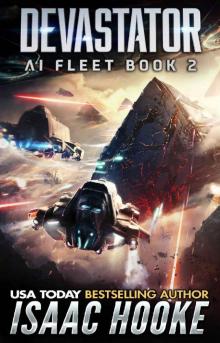 Devastator
Devastator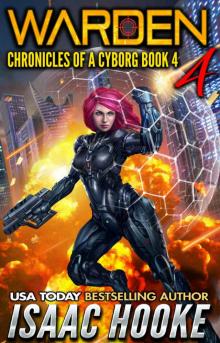 Warden 4
Warden 4 Emperor
Emperor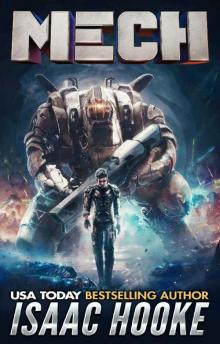 Mech
Mech Conqueror
Conqueror Fighter
Fighter The Forever Gate Ultimate Edition
The Forever Gate Ultimate Edition Defiler
Defiler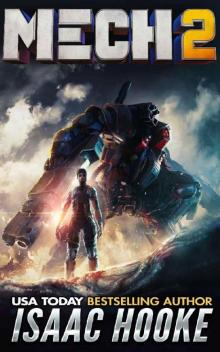 Mech 2
Mech 2 Warden 3
Warden 3 Warden 1
Warden 1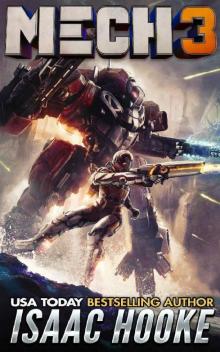 Mech 3
Mech 3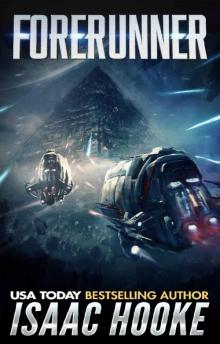 Forerunner
Forerunner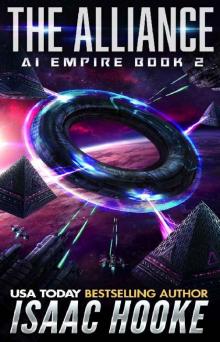 The Alliance (AI Empire Book 2)
The Alliance (AI Empire Book 2)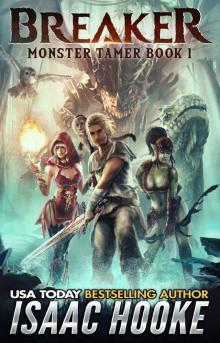 Breaker (Monster Tamer Book 1)
Breaker (Monster Tamer Book 1) Bender of Worlds
Bender of Worlds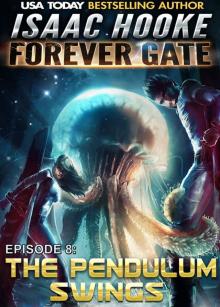 The Pendulum Swings (The Forever Gate Book 8)
The Pendulum Swings (The Forever Gate Book 8)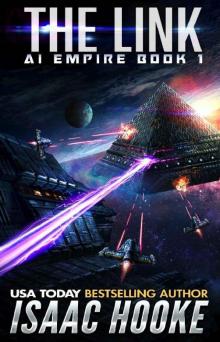 The Link
The Link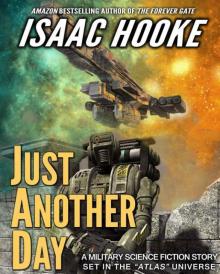 Just Another Day
Just Another Day Star Warrior
Star Warrior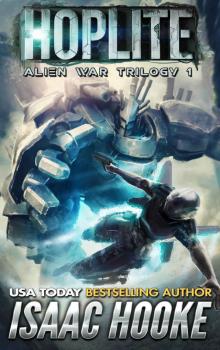 Alien War Trilogy 1: Hoplite
Alien War Trilogy 1: Hoplite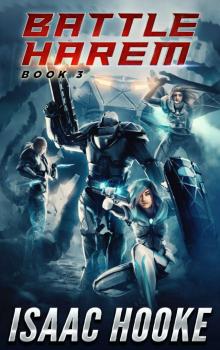 Battle Harem 3
Battle Harem 3 The Ethan Galaal Series: Books 1 - 3
The Ethan Galaal Series: Books 1 - 3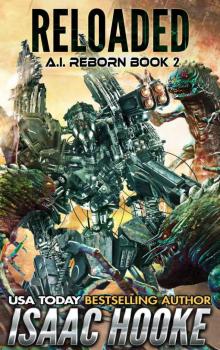 Reloaded
Reloaded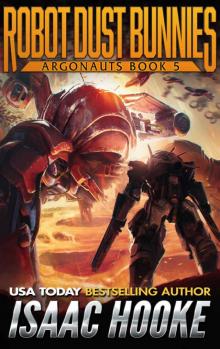 Robot Dust Bunnies (Argonauts Book 5)
Robot Dust Bunnies (Argonauts Book 5) Battle Harem
Battle Harem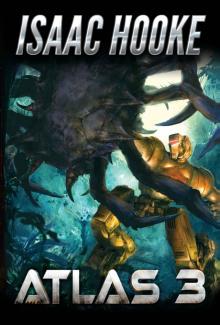 ATLAS 3 (ATLAS Series Book 3)
ATLAS 3 (ATLAS Series Book 3)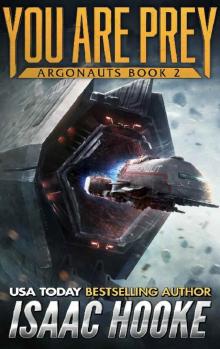 Argonauts 2: You Are Prey
Argonauts 2: You Are Prey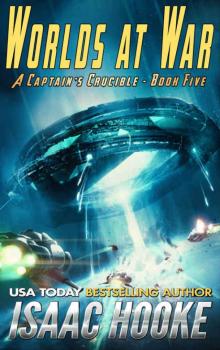 Worlds at War (A Captain's Crucible Book 5)
Worlds at War (A Captain's Crucible Book 5)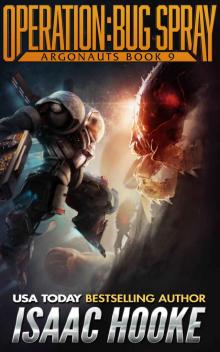 Operation: Bug Spray (Argonauts Book 9)
Operation: Bug Spray (Argonauts Book 9)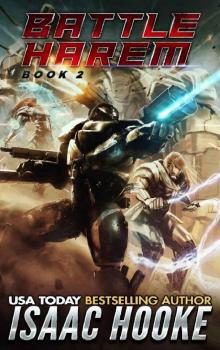 Battle Harem 2
Battle Harem 2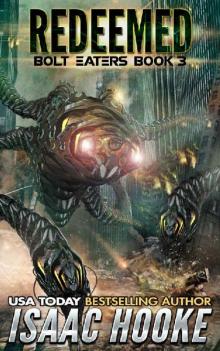 Redeemed (Bolt Eaters Trilogy Book 3)
Redeemed (Bolt Eaters Trilogy Book 3)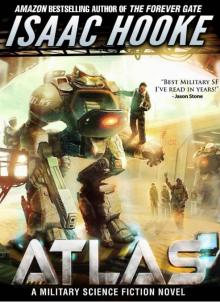 Atlas
Atlas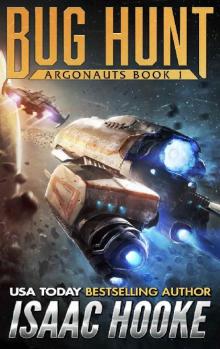 Argonauts 1: Bug Hunt
Argonauts 1: Bug Hunt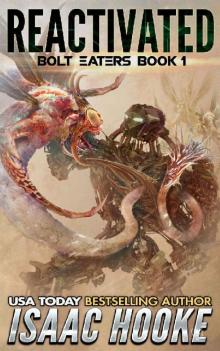 Reactivated (Bolt Eaters Trilogy Book 1)
Reactivated (Bolt Eaters Trilogy Book 1)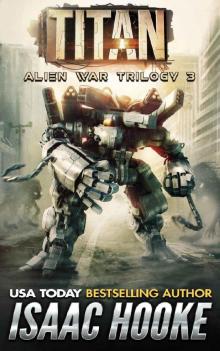 Alien War Trilogy 3: Titan
Alien War Trilogy 3: Titan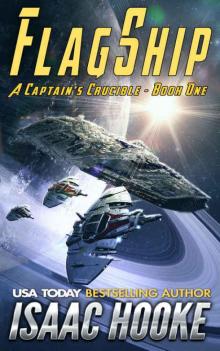 Flagship (A Captain's Crucible #1)
Flagship (A Captain's Crucible #1)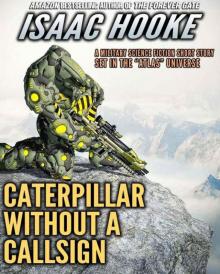 Caterpillar Without A Callsign
Caterpillar Without A Callsign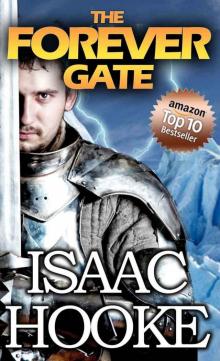 The Forever Gate
The Forever Gate He Who Crosses Death (Star Warrior Quadrilogy Book 3)
He Who Crosses Death (Star Warrior Quadrilogy Book 3)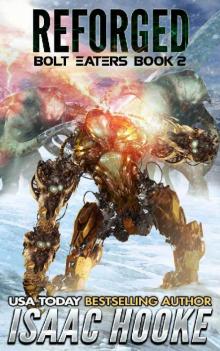 Reforged (Bolt Eaters Trilogy Book 2)
Reforged (Bolt Eaters Trilogy Book 2)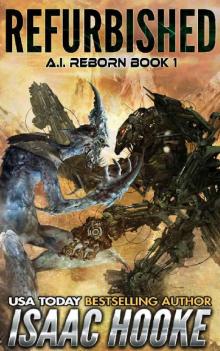 Refurbished
Refurbished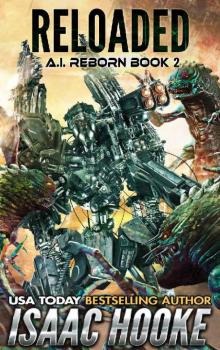 Reloaded (AI Reborn Trilogy Book 2)
Reloaded (AI Reborn Trilogy Book 2) He Who Crosses Death
He Who Crosses Death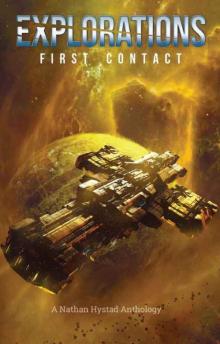 Explorations: First Contact
Explorations: First Contact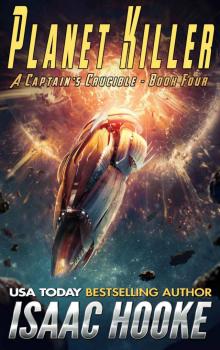 Planet Killer (A Captain's Crucible Book 4)
Planet Killer (A Captain's Crucible Book 4)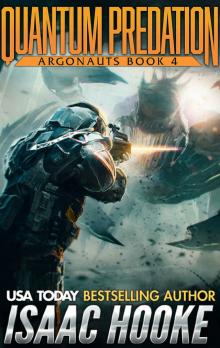 Quantum Predation (Argonauts Book 4)
Quantum Predation (Argonauts Book 4) Clandestine-IsaacHooke-FreeFollowup
Clandestine-IsaacHooke-FreeFollowup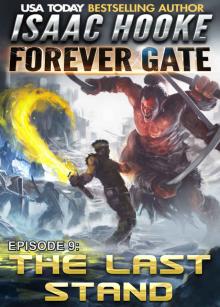 The Last Stand (The Forever Gate Book 9)
The Last Stand (The Forever Gate Book 9)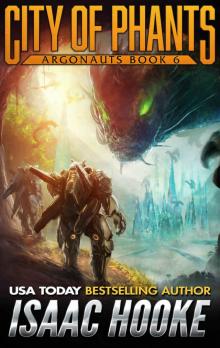 City of Phants (Argonauts Book 6)
City of Phants (Argonauts Book 6)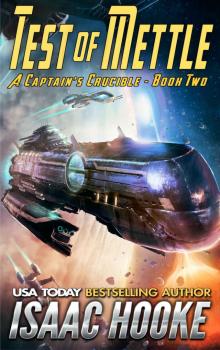 Test of Mettle (A Captain's Crucible Book 2)
Test of Mettle (A Captain's Crucible Book 2)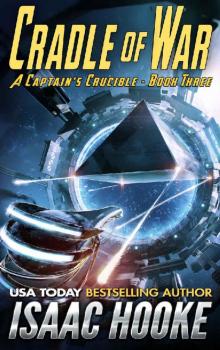 Cradle of War (A Captain's Crucible Book 3)
Cradle of War (A Captain's Crucible Book 3)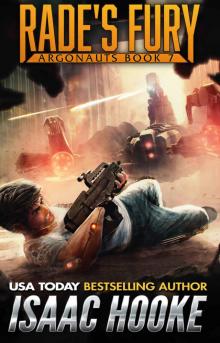 Rade's Fury (Argonauts Book 7)
Rade's Fury (Argonauts Book 7) Rebirth (The Forever Gate Book 6)
Rebirth (The Forever Gate Book 6) The Forever Gate Compendium Edition
The Forever Gate Compendium Edition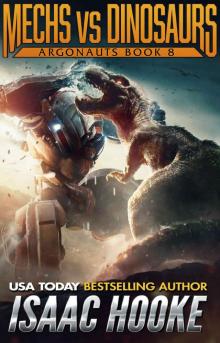 Mechs vs. Dinosaurs (Argonauts Book 8)
Mechs vs. Dinosaurs (Argonauts Book 8)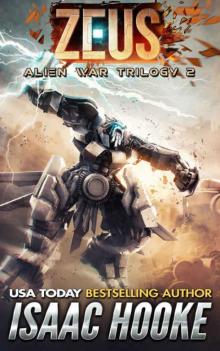 Alien War Trilogy 2: Zeus
Alien War Trilogy 2: Zeus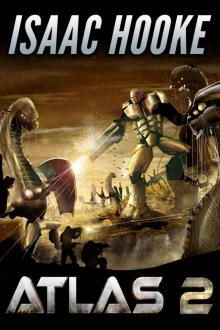 ATLAS 2 (ATLAS Series Book 2)
ATLAS 2 (ATLAS Series Book 2)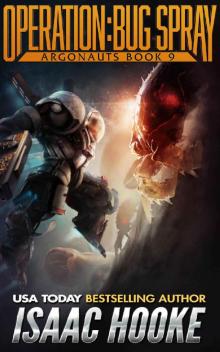 Operation_Bug Spray
Operation_Bug Spray